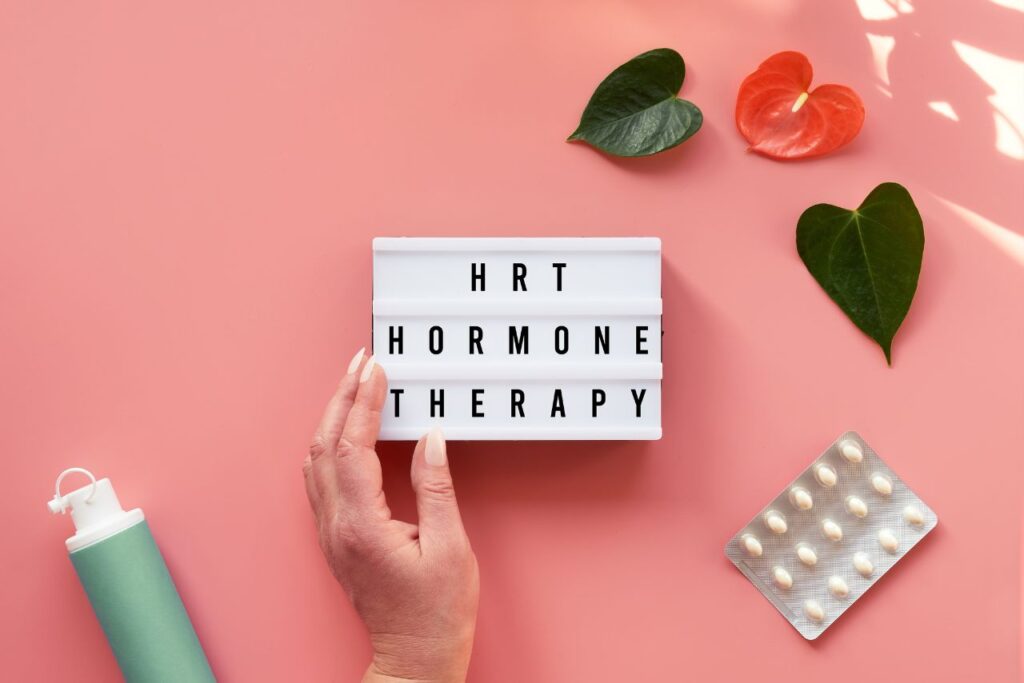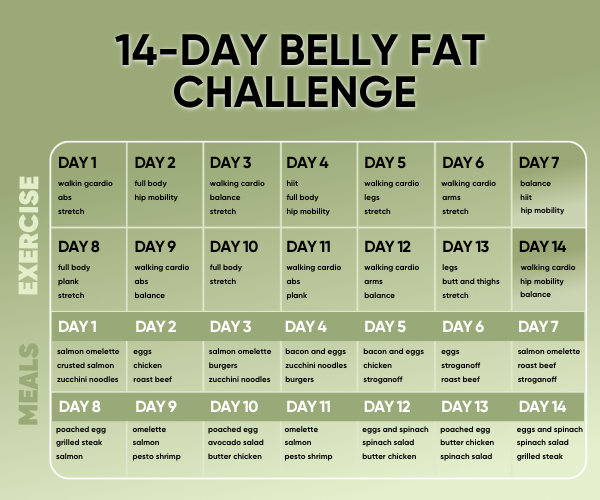
As women age, the transition into menopause is a natural phase, but it also brings about significant hormonal changes. Among the many health concerns associated with menopause, heart disease is one of the most critical.
While ages and gender can increase the risk of cardiovascular disease, some factors can increase during a woman’s menopause period, typically between 54 and 61.
The link between menopause and heart disease is complex, but women over 50 need to know about it. As hormone levels fluctuate, particularly the decline in estrogen, the risk of developing cardiovascular disease can increase significantly.
Let’s explore the risks of heart disease during menopause and provide practical recommendations to help manage menopause heart health.
Key Takeaways: How Does Menopause Affect Your Heart?
- Estrogen drops around menopause, which can make blood vessels stiffer, raise cholesterol, and increase heart disease risk.
- Heart symptoms can change, women may notice palpitations, chest discomfort, shortness of breath, or unusual fatigue rather than “classic” crushing chest pain.
- Risk climbs over time, heart attack risk is generally lower before menopause, but rises noticeably in the 5–10 years afterward.
- Early menopause or ovary removal (before 40) is linked with a higher lifetime risk of cardiovascular disease.
- Lifestyle changes work. Stopping smoking, moving more, managing blood pressure, cholesterol, and blood sugar, and eating a heart-healthy diet can dramatically lower risk.
- Hormone therapy (HRT) has a nuanced role. Starting the right type of HRT near the time of menopause may be heart-safe for many women, but isn’t suitable for everyone and needs a personalised medical decision.
How Are Menopause and Heart Disease Connected?

Menopause and heart disease are closely connected, with the transition often marked by an increased risk of developing heart problems. During menopause, women experience a natural drop in estrogen, a hormone known for its protective effect on the cardiovascular system.
Estrogen plays a role in maintaining healthy blood vessels, improving blood pressure, and regulating cholesterol levels, all of which contribute to better cardiovascular health. This protective effect of estrogen helps reduce the risk of coronary heart disease, particularly in postmenopausal women.
As estrogen levels decrease, women may face an increased risk of developing cardiovascular disease.
Women tend to experience menopausal symptoms such as hot flashes, night sweats, and mood swings, but menopause heart symptoms are often overlooked. Heart palpitations, chest pain, and even heart attack symptoms from menopause can manifest as part of this transition.
These symptoms can be a sign of underlying cardiovascular risk, and ignoring them may delay diagnosis and treatment, potentially leading to heart disease.
Menopause increases a woman’s risk of heart disease, with some risk factors increasing around the time of menopause. A woman’s risk of having a heart attack before menopause is lower than a man’s at the same age, but 10 years after menopause, the number of women having heart attacks rises significantly.
Menopause doesn’t cause heart disease, but it’s a time of life when women should take stock of their cardiovascular health. A woman’s risk of heart disease is higher if she experiences early menopause or has had her ovaries removed before age 40.
READ ALSO: Hot Flashes or Heart Attack: How to Tell the Difference and Stay Safe
What Are the Warning Signs of a Heart Attack in Women?

Do heart attacks in women feel the same as in men? Not always. Women are more likely to have subtle or “atypical” symptoms, which can be mistaken for menopause, indigestion, or stress.
Common heart attack signs in women include:
- Chest pain, pressure, tightness, or discomfort (not always severe)
- Pain, pressure, or discomfort in the jaw, neck, back, shoulders, or one or both arms
- Shortness of breath, with or without chest pain
- Nausea, vomiting, or indigestion-like discomfort
- Unusual tiredness, lightheadedness, or a sense that “something is very wrong”
If you suddenly feel these symptoms, especially chest discomfort plus breathlessness, sweating, or nausea, treat it as an emergency. Call your local emergency number immediately, not your GP’s office. Fast treatment can save heart muscle and save lives.
How Exactly Does Menopause Increase the Risk of Heart Disease?

Menopause is more than just the cessation of menstruation; it’s a significant shift in the body’s hormonal balance. This hormonal change can influence a variety of cardiovascular risk factors that directly contribute to heart disease.
The menopause transition is a critical period during which women’s cardiovascular disease risks significantly increase due to hormonal changes, particularly the reduction of estrogen.
Here’s how menopause can increase the risk of heart disease:
1. Declining Estrogen levels
Estrogen has been shown to help regulate blood pressure and cholesterol levels, two critical factors in maintaining heart health.
As estrogen levels drop during menopause, high cholesterol, high blood pressure, and other cardiovascular risk factors can increase, significantly elevating the risk of developing heart disease.
2. Abdominal Obesity
Weight gain, particularly around the abdomen, is a common issue for many women during menopause. Abdominal obesity is a known risk factor for cardiovascular disease and can increase the chances of developing heart disease.
Additionally, metabolic syndrome, which includes high blood pressure, high blood sugar, and abnormal cholesterol levels, becomes more prevalent during this time.
3. Increased Blood Clotting
As hormone therapy or hormone replacement therapy (HRT) is used to treat menopausal symptoms, women may experience an increased risk of blood clots.
This can be especially dangerous for those already at risk for cardiovascular disease or a heart attack.
4. Physical Inactivity
During menopause, many women experience a shift in physical activity levels due to a combination of fatigue, brain fog, and other menopause symptoms.
Lack of regular physical activity is one of the leading causes of cardiovascular disease and is associated with higher rates of heart disease.
READ ALSO: Essential Guide to Heart Health for Women: Risks and Prevention
What Menopause-Related Heart Symptoms Should You Watch For?

The symptoms of menopause heart problems can be subtle and often go unnoticed. Understanding the signs is critical for timely diagnosis and treatment.
- Heart Palpitations: Many women report feeling like their heart is racing or fluttering, which can be a symptom of menopause heart attack or cardiac symptoms.
- Chest Pain: Pain or discomfort in the chest can be a sign of heart disease or a heart attack. It’s essential to differentiate between the chest pain caused by menopausal symptoms and that caused by cardiovascular disease.
- Fatigue: Extreme tiredness can be both a common symptom of menopause and a sign of heart disease. Feeling unusually fatigued, especially during physical activity, should be discussed with a healthcare provider.
- Shortness of Breath: Difficulty breathing can occur due to heart disease or other related conditions. Women experiencing shortness of breath should seek medical attention to rule out cardiovascular issues.
- Increased Heart Rate: While an elevated heart rate can be a common symptom of hot flashes, it can also indicate more severe cardiovascular risk if it persists.
What Are the Key Facts About Menopause and Heart Disease?
- New research suggests that women with both migraines and vasomotor symptoms (hot flashes and night sweats) are significantly more likely to develop heart disease or have a stroke.
- Women with a history of both symptoms are 1.5 times as likely to develop heart disease and 1.7 times as likely to have a stroke when compared to other women.
- The study found that the link was particularly strong among women who have migraines with aura.
- Nearly 8 in 10 menopausal women experience hot flashes, while migraines affect about 17.5% of women in their late reproductive years.
Which Risk Factors Matter Most for Heart Disease After Menopause?

Several cardiovascular risk factors can contribute to the risk of heart disease in women over 50:
High Blood Pressure
As blood pressure naturally increases with age, women in menopause may experience high blood pressure at a higher rate than their pre-menopausal counterparts. This condition significantly raises the cardiovascular risk for developing heart disease.
High Cholesterol
High cholesterol, particularly high levels of LDL (bad cholesterol) and low levels of HDL (good cholesterol), contributes to the buildup of plaque in the arteries, increasing the risk of heart attacks and stroke.
Physical Inactivity
Lack of exercise or physical activity during the menopausal transition can increase cardiovascular risk. Regular physical activity is essential for maintaining heart health and reducing cardiovascular disease risk.
Smoking
Smoking is a major risk factor for cardiovascular disease and exacerbates the effects of menopause on heart health.
Other risk factors includes:
- Type 2 diabetes or insulin resistance
- Excess abdominal fat and obesity
- Physical inactivity or long sedentary periods
- Family history of early heart disease (close relative with heart attack or stroke at a young age)
- Autoimmune or inflammatory conditions, such as rheumatoid arthritis
- Early menopause (natural or surgical)
Your doctor may use a risk calculator (such as the Framingham risk score or similar tools) to estimate your 10-year risk and decide whether you need medication alongside lifestyle changes.
How Can You Protect Your Heart During and After Menopause?

So what can you actually do to lower your risk? Think of it as building daily habits that treat your heart kindly.
Helpful steps include:
- Stay smoke-free: If you smoke, getting help to quit is one of the most powerful heart-saving actions you can take.
- Move regularly: Aim for at least 150–300 minutes of moderate aerobic activity per week (such as brisk walking) plus 2 sessions of strength training for your major muscles.
- Choose a heart-healthy eating pattern: Focus on vegetables, fruits, whole grains, beans, nuts, and healthy fats (like olive oil), while limiting processed foods, added sugars, and salty snacks.
- Know your numbers: Check blood pressure, cholesterol, blood sugar, and weight regularly, and work with your doctor if they’re outside the healthy range.
- Manage stress and sleep: Chronic stress and poor sleep are linked with higher blood pressure and heart disease risk; gentle exercise, relaxation techniques, and good sleep routines help.
You don’t need to change everything overnight. Small, steady improvements in movement, food, and stress add up over the years and can significantly cut your risk of future heart attacks or strokes.
Can Hormone Replacement Therapy (HRT) Help or Harm Your Heart?

Hormone replacement therapy (HRT) is often prescribed to alleviate menopausal symptoms. While HRT can offer relief from hot flashes, night sweats, and other symptoms, its role in cardiovascular health is controversial.
Research suggests that HRT may have both positive and negative effects on heart health, depending on the individual’s age, health status, and the type of therapy used.
- For Younger Women: Hormone therapy may provide a protective effect against heart disease if started early in the menopausal transition.
- For Older Women: The risks of blood clots and heart disease can increase with HRT if started later. Women who begin hormone replacement therapy after the age of 60 are at a greater risk of developing cardiovascular disease.
Recently, regulators have begun to soften some of the strictest warnings on menopause HRT as new data have shown that, used appropriately, it is not as dangerous as once thought. However, HRT is not a heart-prevention drug and isn’t suitable for everyone.
If you’re considering HRT:
- Discuss your age, time since menopause, personal and family history, and cardiovascular risk factors with your doctor.
- Ask specifically about heart and clotting risk, and whether a patch or gel might be safer than tablets for you.
- Review HRT regularly with your healthcare team, especially if your health status change
When Should You See a Cardiologist About Menopause and Heart Health?

Consulting a cardiologist is an essential step in maintaining heart health, particularly for women who are at risk of cardiovascular disease.
A cardiologist can help to:
- Assess cardiovascular risk factors: A cardiologist can assess a woman’s risk factors for cardiovascular disease, including high blood pressure, high cholesterol, and family history.
- Develop a personalized treatment plan: A cardiologist can develop a personalized treatment plan to help manage cardiovascular risk factors and reduce the risk of heart disease.
- Monitor cardiovascular health: A cardiologist can monitor a woman’s cardiovascular health over time, making adjustments to the treatment plan as needed.
Women should consult with a cardiologist if they:
- Have a family history of heart disease
- Have high blood pressure or high cholesterol
- Have experienced menopause symptoms, such as hot flashes or night sweats
- Have a history of cardiovascular disease
- Are concerned about their cardiovascular health
Speaking with a cardiologist is one way for women to take charge of their heart health and lower their risk of heart disease.
Closing Thoughts
Menopause and heart disease are intricately linked, with several factors during this transition period contributing to an increased risk of heart disease.
Women can take steps to protect their heart health by learning about the heart health risks and symptoms that come with menopause.
With lifestyle changes, proper diet, and regular monitoring of cardiovascular risk factors, women can reduce their risk of heart disease and lead healthier lives well into their post-menopausal years.
In fact, prevention of cardiovascular diseases should begin early for both men and women. Consultations during the perimenopausal and menopausal periods are an ideal opportunity to assess cardiovascular risk.
Important: This article is for general education only. It does not replace personal medical advice. Always speak to your doctor or a qualified health professional if you have new, worrying, or persistent symptoms.
FAQs: Menopause and Heart Disease
No. Menopause doesn’t directly cause heart disease, but the drop in estrogen and age-related changes increase risk, especially if other factors like high blood pressure, high cholesterol, or smoking are present.
Palpitations can happen during menopause due to hormone fluctuations and are often harmless, but they can also signal heart rhythm issues or other problems. If they are frequent, prolonged, or associated with chest pain, dizziness, or breathlessness, see your doctor.
Severe or frequent hot flashes and night sweats have been associated with higher blood pressure and other cardiovascular risk factors in some studies, so they may be a marker of higher risk rather than a direct cause.
Yes. Women who experience menopause before about 45 or have their ovaries removed early, have a higher lifetime risk of cardiovascular disease and may benefit from closer monitoring and early lifestyle changes.
For many healthy women under 60 who start HRT within 10 years of menopause, modern HRT appears heart-safe and may have neutral or modestly favourable effects. However, it’s not suitable for everyone, especially those with existing heart disease, clotting disorders, or high risk. Always discuss your individual case with a doctor.
Yes. Stopping smoking, exercising regularly, eating a heart-healthy diet, and managing blood pressure, cholesterol, and blood sugar can significantly lower your risk, even if you’re already postmenopausal.
Any sudden chest pain, pressure, tightness, or discomfort, especially with shortness of breath, nausea, sweating, or pain in the jaw, neck, or arm, should be treated as a potential heart attack. Call emergency services immediately rather than waiting to see if it passes.




















